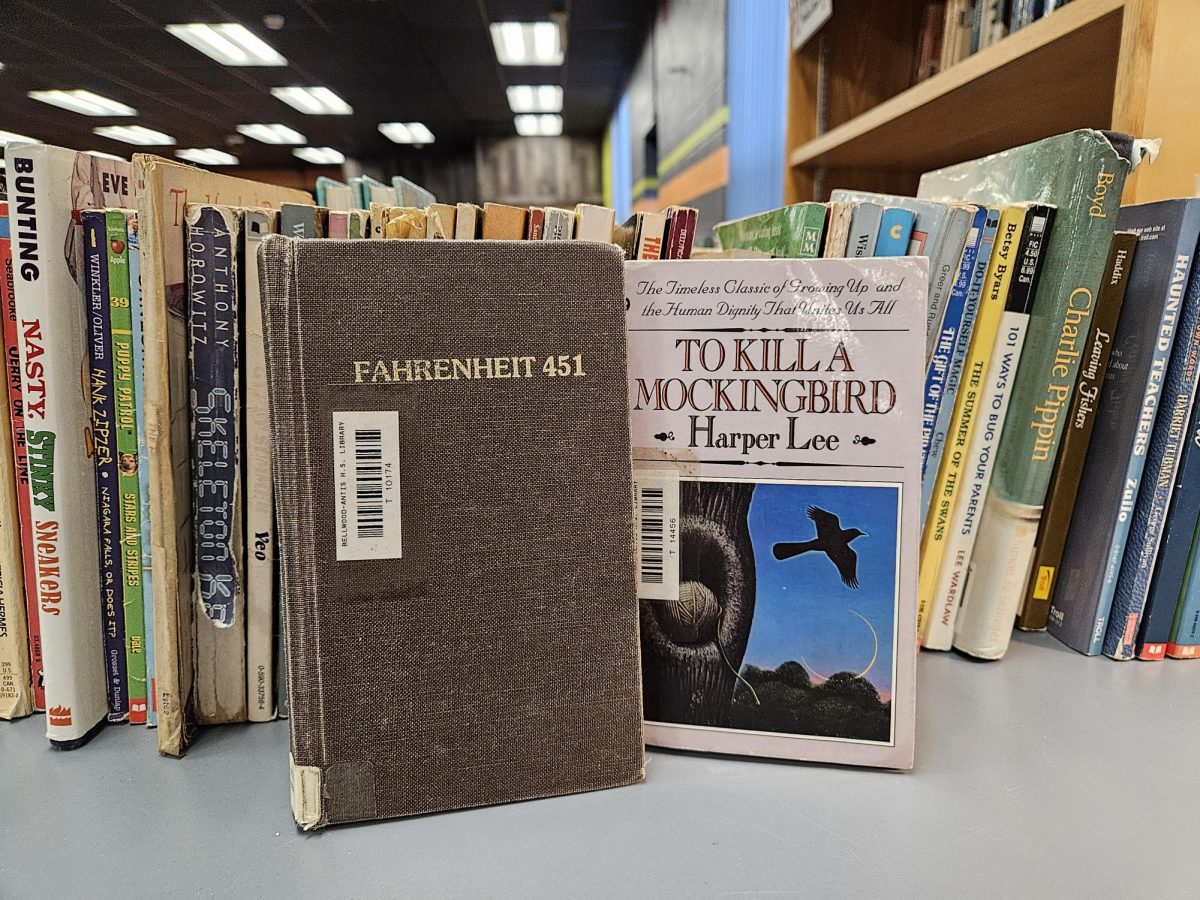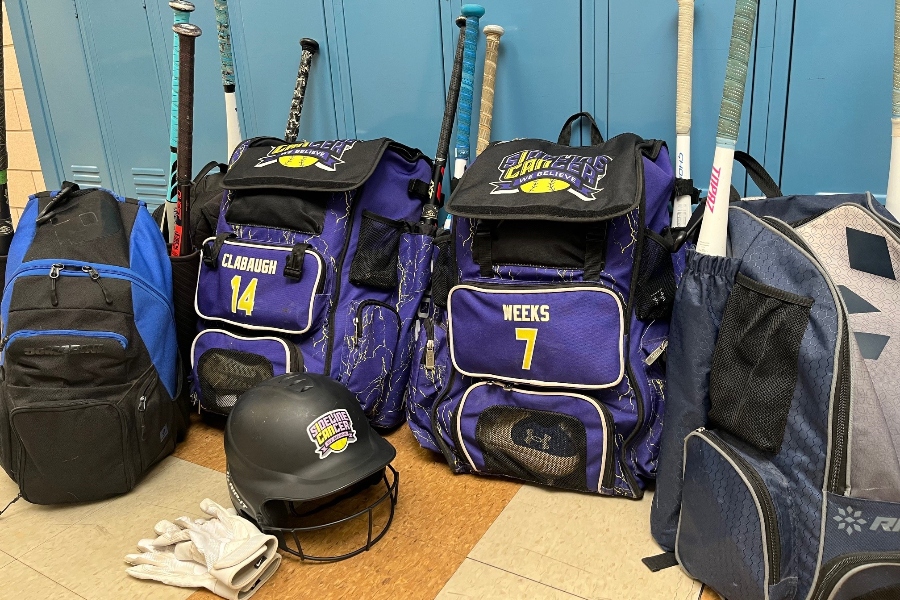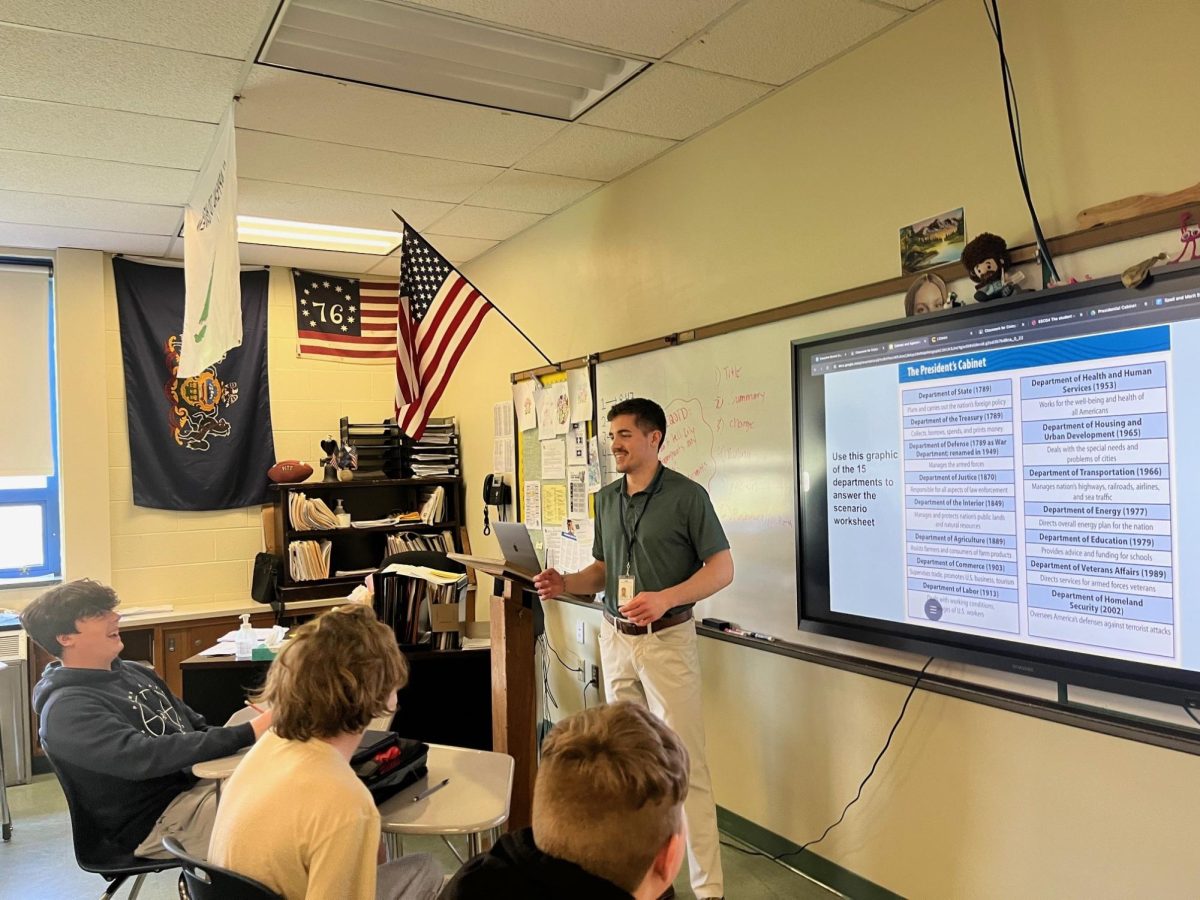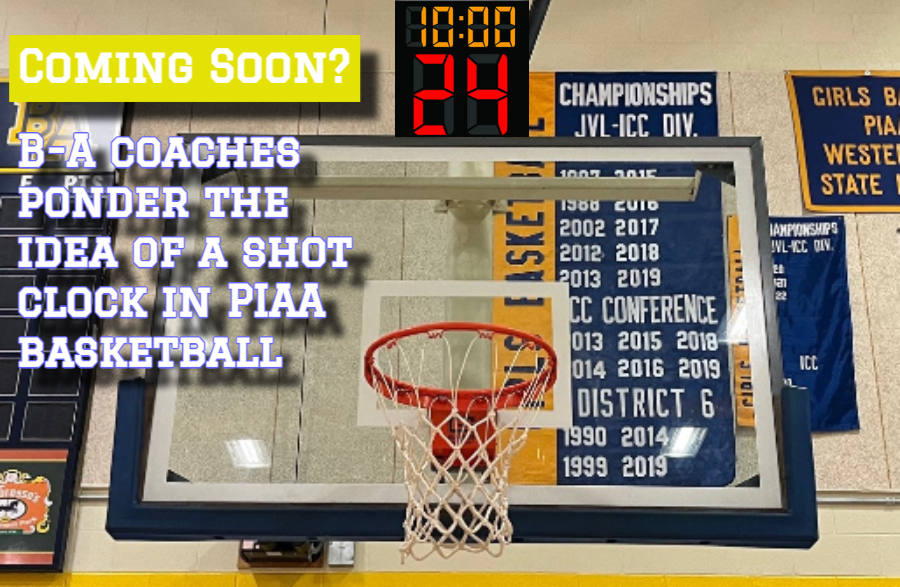“The magic is only in what books say, how they stitched the patches of the universe together into one garment for us,” wrote Ray Bradbury in his dystopian novel, Fahrenheit 415. The novel takes place in a future society where books are banned and deemed dangerous.
In our country today, we can see Bradbury’s fiction coming to life. Books are being banned in public schools and libraries in almost every state across the U.S. Some parents of students believe this is a safety precaution to protect their children, while others believe it is a breach of the First Amendment and silences voices.
What are Book Bans?
According to the ELC (Education Law Center) a book ban takes place “[W]hen a school administrator or other personnel removes or restricts student access to a book that was previously available, based on the content of that book.”
Most books are banned due to mentions of:
- Death
- Grief
- LGBTQ+ themes
- Mentions of race
- Offensive language
- Sexual content
- Violence
The ELC found that 42% of banned or targeted books contained LGBTQ+ themes, 28% have characters of different races, and 6% contained both.
The U.S. has issued more than 2,500 book bans since 2021, and from 2022 to 2023 alone there have been 1,477 books banned already. States such as Florida and Utah have created laws allowing the practice of book bans on their state level.
The law regarding the practice of book bans is overly broad on what can be removed or not. Public schools can remove curriculum if it is related to a true concern of controversial topics, but they are not allowed to attack certain viewpoints under the First Amendment. A student cannot be prohibited from their right to receive information or certain viewpoints through books by removing them because the board has an aversion for the messages they teach.
Pennsylvania Book Bans
The state of Pennsylvania banned 458 books from 2021 to August 2022. This makes the state 3rd in the U.S. for most book bans. This year alone, 27 books have already been banned in the state.
Lighter than My Shadow, for example, which isa graphic novel discussing the struggles of eating disorders by Katie Green, was pulled from a school district in Lancaster County.
So far Pennsylvania has not created any state laws aimed at book bans, but some senators have bills floating throughout the capitol.
Pennsylvania senator Amanda Cappelletti introduced a bill in April regarding the prohibition of book bans. This bill would no longer allow state funded libraries and public schools to ban books and affect current book bans as well.
She attended a press conference in September talking about the bill, and you can read an article about it here.
Another Pennsylvania state senator, Ryan Aument, also introduced a bill that would make parents more in control of what books their children can read inside the classroom. His bill would inform parents of sexually explicit content accessible to students and would allow them the opportunity to prohibit their children from reading it.
Other school districts have already created policies like Aument’s bill to let parents decide what content their children can see in school, since there has been a growth in movements by parents directed towards what their children are learning in the classroom.
Book Banning Locally
Bellwood-Antis School District has yet to ban any books.
“There are some books on my shelves that might be banned in other schools, like To Kill a Mockingbird or Looking for Alaska,” stated Mr. Naylor, the chair of the English department, “but I have never stopped a student from reading a book in my classroom. That doesn’t mean that all books are appropriate for a school to distribute to students. Teachers should know their community and do their best to recognize community standards.”
Mr. Naylor said there are hundreds of book titles to choose from in his room, most of them from the Young Adult genre. Some contain themes that are mature, but no student is forced to read the books. All of the reading is done by choice.
At B-A, 11th grade students get the opportunity to read two widely banned books throughout the country: Fahrenheit 451 and To Kill a Mockingbird. The English class is currently taught by Carol Bartlett and her student teacher, Cassie Petletski.
Petletski stated that the theme of To Kill a Mockingbird is to “[E]xplore the moral nature of human beings and protecting innocence,” and that the novel “shines light on themes such as racial prejudice, social justice, and oppression.” She believes that these themes along with others are good messages that benefit students.
“The main message of [Fahrenheit 451] is to show the importance of identity in a corrupted society,” Petletski continued. She believes the novel allows students to maintain their values while reading, teaches the dangers of technology in society, and helps students find a sense of community.
Her personal stance is that these two books should not be challenged to be banned, although she can see why others would challenge them due to their vulgar language and theme on racial issues. “I believe these books were banned to keep society happy,” she said. “Students and people alike should be able to formulate their own opinions and ideas while reading whether they are positive or negative.”
I believe these books were banned to keep society happy.
— Cassie Petletski
Petletski believes reading diverse books gives students “exposure to experiences of those from different background… and also finding some similarities that the students themselves may be experiencing as well.”
Although she is against book bans overall, she believes there are valid reasons that books could be forbidden in schools, like those that are sexually explicit.
The Hollidaysburg Area School District has recently begun to discuss policy changes due to an inappropriate book found on a teacher’s desk.
The book Gender Queer by Maia Kobabe discussed the struggles faced through adolescence as a person struggling with their gender identity and has faced bans in school districts across the country like Virginia, Florida, and more.
The book is intended for audiences in high school and up because of sexually explicit images, and although the students in the teacher’s 7th grade classroom did not see the controversial content inside, the teacher had to remove the book from the school premises.
Parents and community members have been challenging the book for its sexual content as well as having LGBTQ+ topics.
The school district is talking about adding policies that would make certain topics not suited for the classroom such as gender identity, politics, or religion.
Learn more about the incident at Hollidaysburg here.
How to Make Change
There has been a spike in parents and students who want to know more about policies regarding book bans in their area, whether they want to combat these bans or have their district enforce them.
One way to go about gaining this information is by filing a Freedom of Information request, which gives any citizen the right to gain access to government affiliated records. This request can be used to find out if a school district has removed or targeted any books.
School board meetings have also been an effective way for concerned community members to talk to the board one-on-one to make their voices heard. Voting for school board members has also been a crucial key for people to vote for candidates they believe will uphold their values.
Students who are passionate about the impact of book bans in their community educate themselves on their right to protest policies made by school districts regarding such bans.










